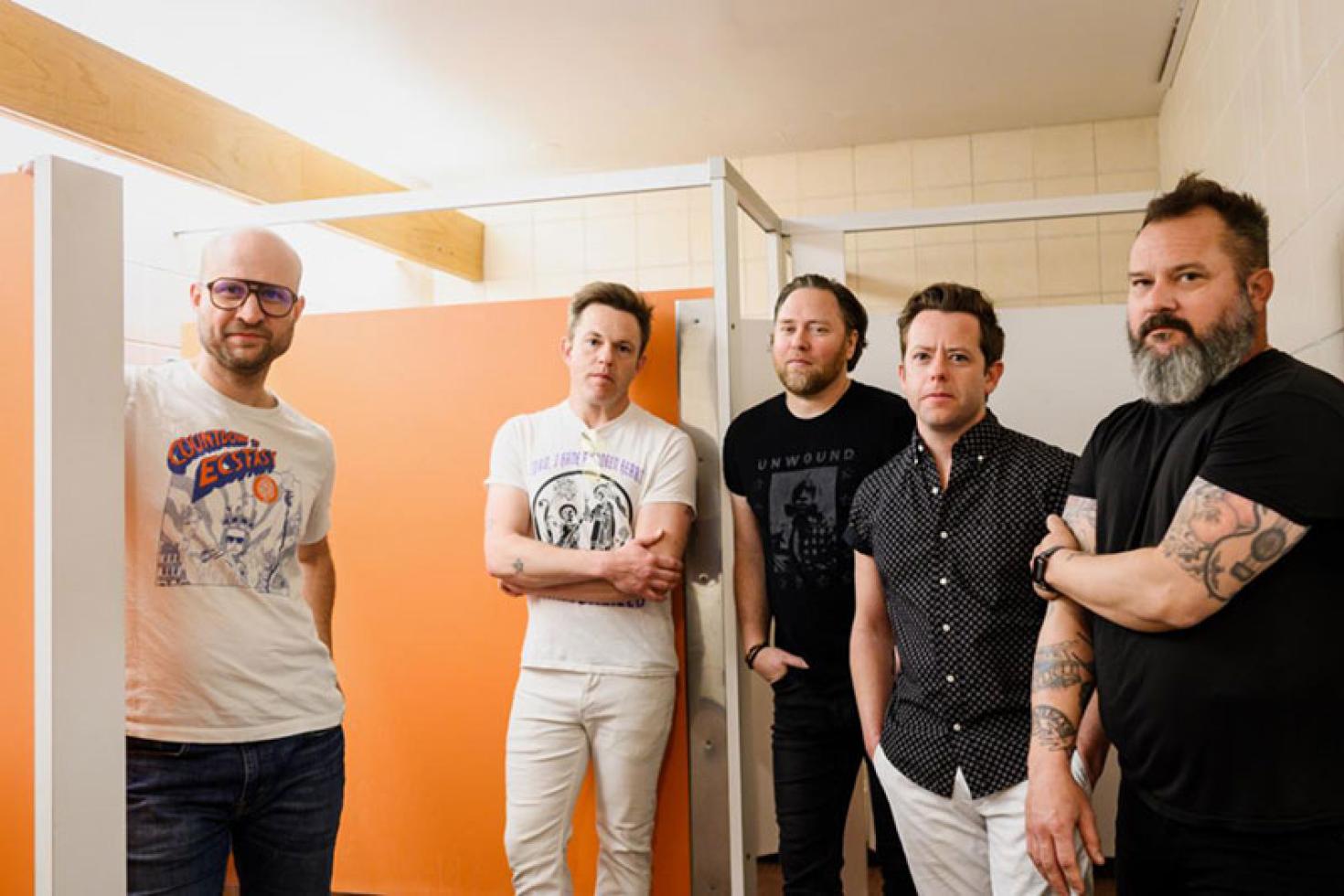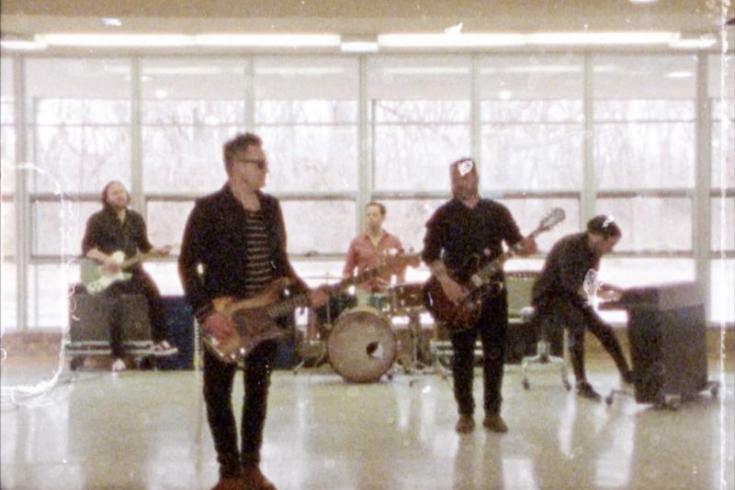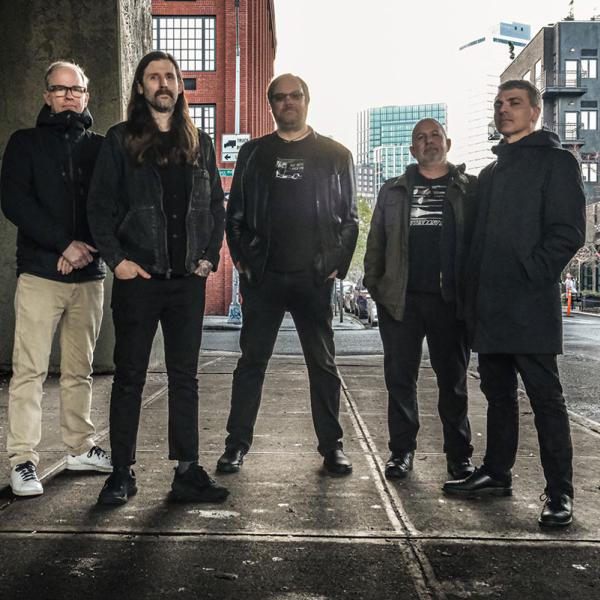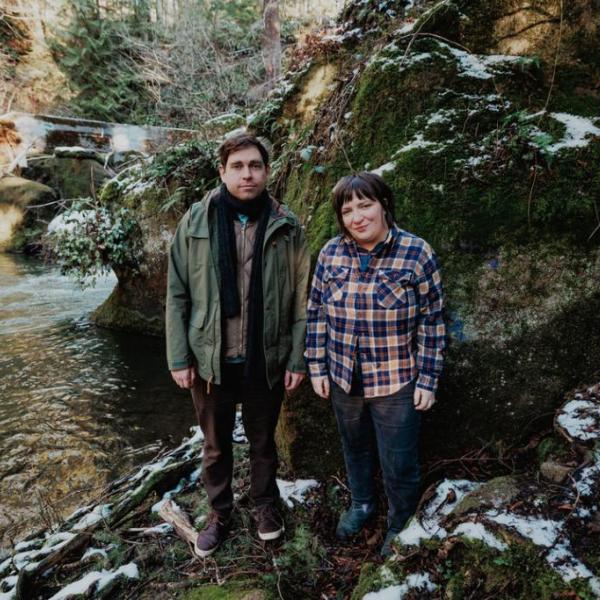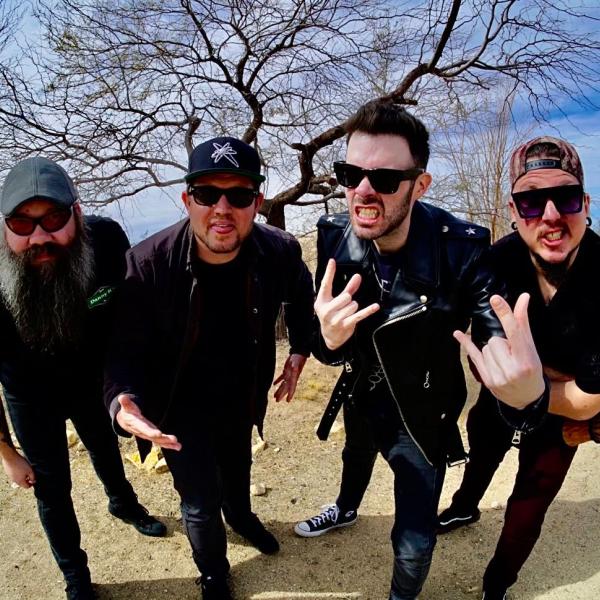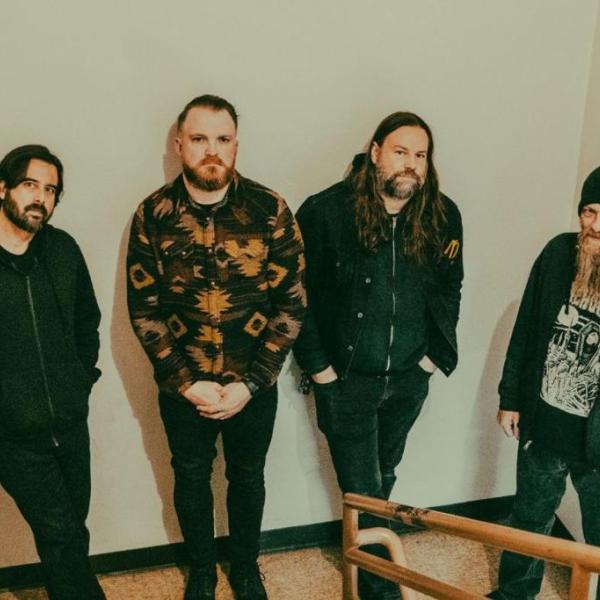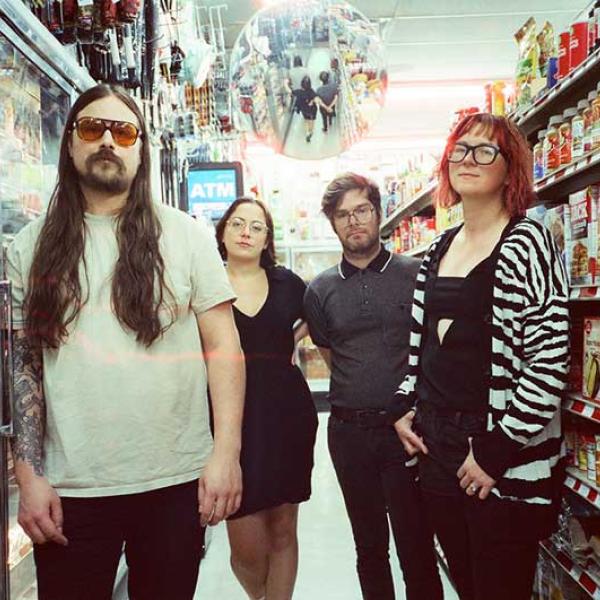News
The Get Up Kids announced the 25th anniversary reissue of their seminal sophomore album, 'Something to Write Home About,' will be released digitally on August 23rd and physically on September 20th via Polyvinyl Record Co. The newly remastered, genre-defining LP will feature expanded music and artwork, including a 28-page large format full-color booklet. Its second LP contains a mix of 12 rare or previously unreleased demos (including the original four-track acoustic recordings by singer/songwriter Matt Pryor), which reveal the sturdiness of its songs—a tracklist battle-tested in hundreds of live settings. The Kansas City-based band of Pryor (guitar/vocals), Jim Suptic (guitar/vocals), Rob Pope (bass), Ryan Pope (drums), and Dustin Kinsey (keys), also released the first official music video for the album's urgent opener, "Holiday," alongside its demo version, “Holiday (Demo).”
“The biggest takeaway from watching this video is how young we were,” says Pryor of the “Holiday” video, which was directed by Shawn Brackbill and features unearthed tour footage from the era. “It’s like watching your parents’ home movies of you riding a big wheel in the backyard. Just babies. A lot of these are from a time when the record was finished but people hadn’t really heard it yet. We’d just spent a long, frustrating year trying to get it made and when it finally saw the light of day we just came out swinging. I remember a lot of these shows, The Fireside Bowl in Chicago particularly. That always felt like a home away from home for us back then. The kids onstage in these videos really have no idea how much this album will change their lives, that we’ll still be talking about it twenty five years later.”
“When we set out to write what would become the album Something to Write Home About, I never imagined all the places it would take us. From touring around the world, being on MTV’s 120 Minutes, to opening for childhood heroes” adds guitarist/singer Suptic about the album. “When I listen back to these demos it takes me right back to our practice space in Kansas City. We were so young, but we were driven to make something great. When we walked into that LA studio, we were very prepared. This was the first time we actually made real demos for a record and I think it shows in the final product.”
The August 23rd digital release coincides with the start of The Get Up Kids’ North American headlining tour that includes three sold-out nights at LA’s Troubadour and across which they will play the album in its entirety. The run will end with a performance at Las Vegas’ Best Friends Forever Fest.
Released on September 28th, 1999, mere months after the band's stint in the studio, Something to Write Home About emerged into a rock landscape dominated by commercial rock, post-grunge, and nü-metal. "Nothing that was popular sounded like our album," says Suptic. "That style of music wasn't mainstream." Yet Something to Write Home About, along with fellow 1999 releases like Jimmy Eat World's Clarity and the Promise Ring's Very Emergency, solidified a canon of expansive, pop-leaning emo that would guide the genre's explosion in the new millennium, and go on to inspire platinum-selling bands like Fall Out Boy and My Chemical Romance, as well as wave upon wave of emo revival acts.
Compared to their 1997 debut Four Minute Mile—recorded over a whirlwind weekend in Chicago on a shoestring budget—their follow-up was given the time and resources to be fully realized, thanks to a freshly signed agreement with Vagrant Records that concluded an arduous label search. “We spoke with nearly every major-label A&R person that was out in the world,” says Pope. “They had weird expectations for our band, and I think we aimed a little higher than the major labels did.”
The Get Up Kids’ goal at LA’s Mad Hatter studio was to surpass the first album’s songwriting and sonic qualities without losing the authenticity and energy Four Minute Mile encapsulated—and that the band displayed at every stop of their relentless tour schedule. The LP captured the band’s growing musicianship–their playing pivots from aggressive to sensitive from track to track, sometimes even within songs. “Our first record is what it is—its imperfections are one of the things that people like about it,” says Pryor. “But I personally wanted us to record something that sounded like a real band, that sounded professional and, you know, big.” Working for the first time with Chad Blinman, who co-produced the record with Alex Brahl, the band achieved the massive sound they sought. “The record sounds bigger and more expensive than it actually is,” says Pryor, “which I think is a testament to both our ability as a band and to Blinman's ability as a producer.” Pope describes the “little magical moments” in the songwriting and arrangements, where maturity and nuance merged with the unexpected touches that sprang from the young band’s instincts. “It was pretty natural,” he says, “which is kind of how a lot of cool things happen—when you don’t overthink it too much.”
But Something to Write Home About’s success wasn’t limited to its immeasurable influence. It also positioned Vagrant, which would later add emo luminaries like Saves the Day and Dashboard Confessional to its roster, as the genre’s preeminent label. It also led to the band’s opening slots for Green Day and Weezer, and sold-out shows across a two-year headline tour that, by its end, had pushed the album’s Billboard Heatseekers chart summit to #31 and its unit sales into six figures (a rarity for an indie record in the late ‘90s).
In both the early drafts and remastered tracks contained on this definitive version of Something to Write Home About, longtime fans will return to places familiar and formative, and rediscover plenty of moments as vivid as they were on first listen. The expanded packaging includes revamped jacket artwork plus a booklet with handwritten lyrics, photos, and other ephemera from the era, while its demos reveal key changes to lyrics, as in opener “Holiday,” as well as abandoned instrumental ideas. Pryor points to a “twangy” guitar line in “Valentine” jettisoned by Suptic. “It’s so funny listening to it now,” Suptic says. “My better taste prevailed.” For the Get Up Kids, these demos also have the same transportative quality as the finished album, warping them right back to downtown Kansas City and the five-story decommissioned ROTC training facility that — for $100 a month — served as their practice space. “When I hear those particular demos,” says Rob Pope, “it takes me right back to that rehearsal room.”

